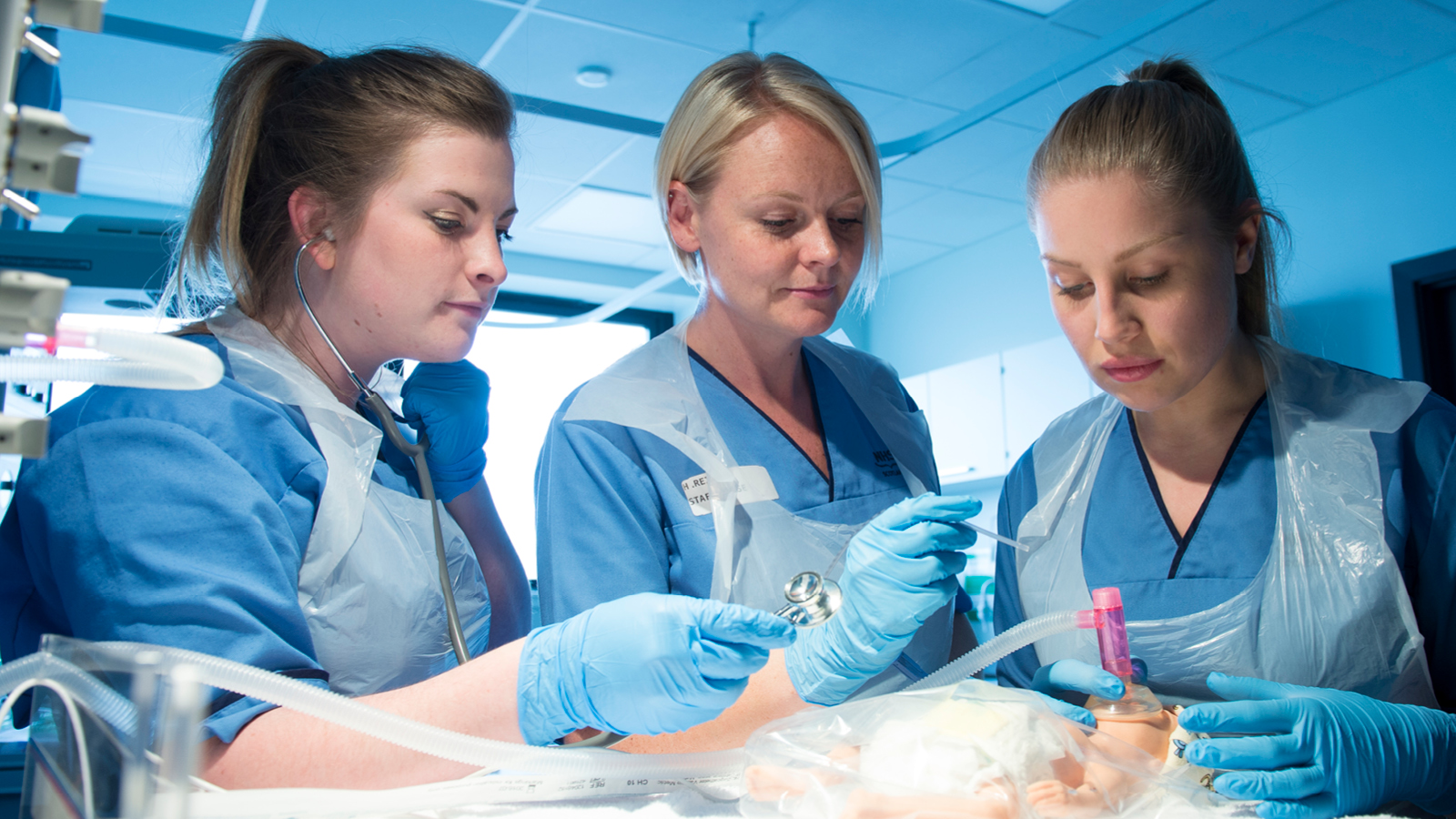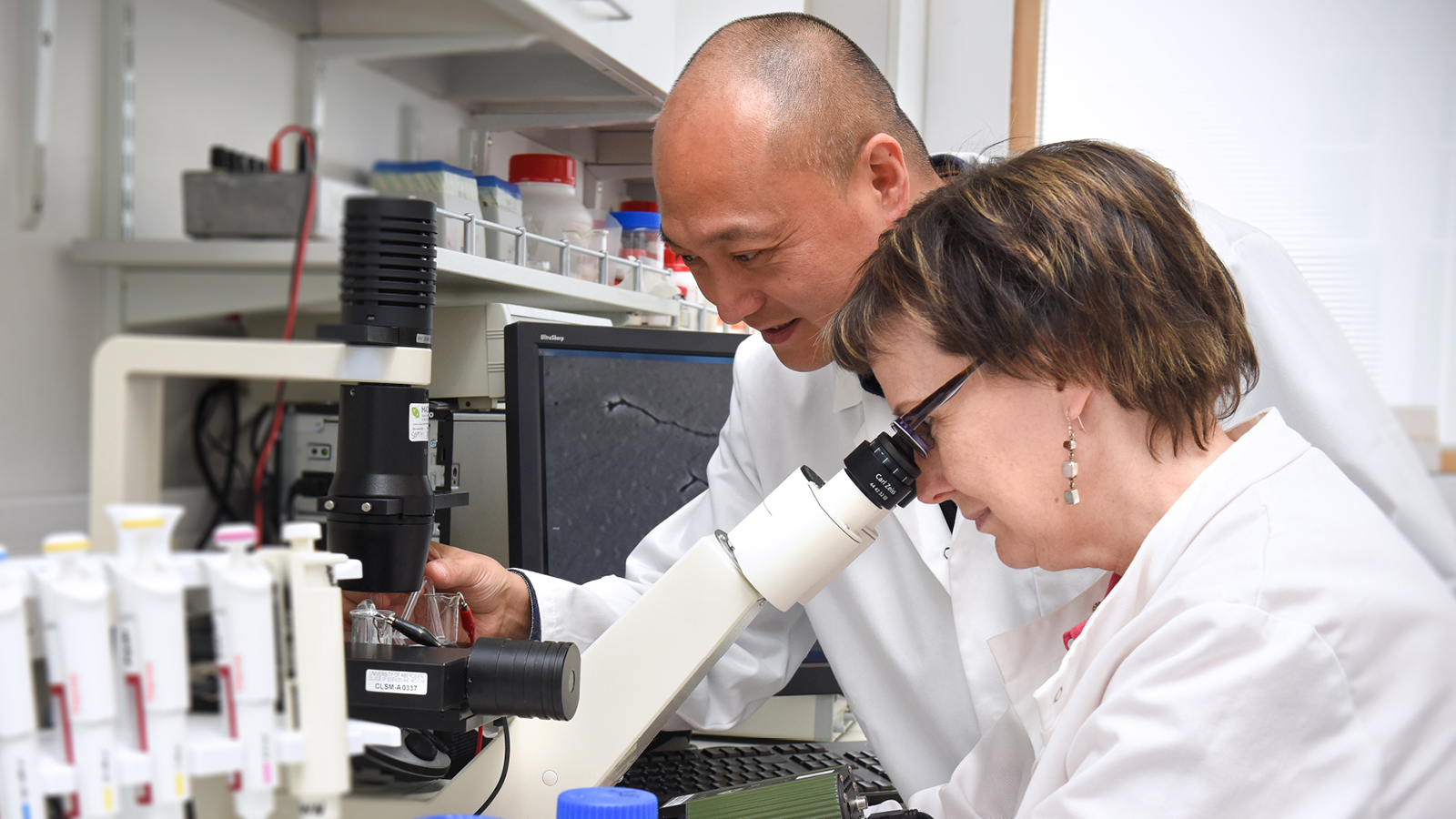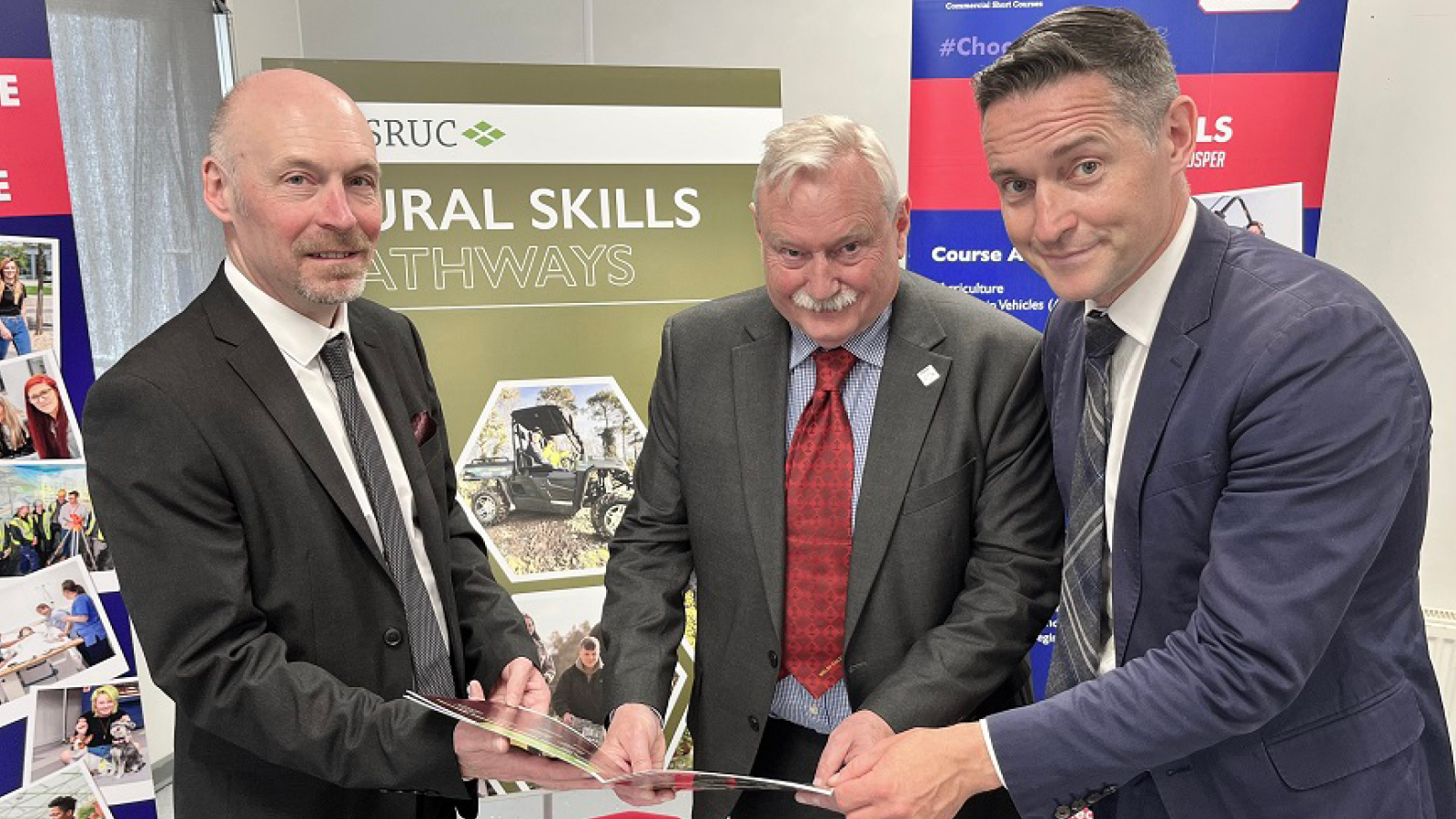

The latest Times Higher Education (THE) World Rankings feature three Scottish universities in the top 25 institutions in the UK. All three have also achieved a top 200 ranking in the world. The Times Higher Education World University Rankings 2024 include 1,904 universities across 108 countries and regions.
The University of Edinburgh is ranked 5th in the UK and 30th in the world. The University of Glasgow is 10th in the UK list and 87th internationally, while the University of St Andrews is 25th in the UK and 193rd in the world listings.
The University of Oxford leads the THE World University Rankings 2024 for an eighth consecutive year.
THE analysis of the data behind the results indicates a decline in the average rank of universities in the United States over the last six years and a lesser fall in the UK’s average rank. Countries where the average rank has improved over the same period include China, Australia and Canada.
The full results and analysis of the rankings are available on the THE website.

Figures released today from UCAS show an exceptionally high level of demand for university places from Scottish school leavers. So far in the university admissions cycle for 2023-24 16,510 Scottish school leavers have been accepted for a place at university. The figure is 19% higher that it was at the same point in 2019 before the disruptions of the COVID-19 pandemic.
More generally, overall demand from Scottish applicants has returned to pre-pandemic levels with 33,310 Scottish applicants being accepted onto a degree course at a Scottish university. In line with other parts of the UK, a higher proportion of applicants have been accepted through the Clearing process.
Today’s figures also show a slight increase of around a third of a percentage point on last year in the proportion of acceptances from applicants from the 20% most deprived areas of Scotland.
Clearing remains open until 17 October and the UCAS team is available to advise and guide students still exploring their options. More information is available on the UCAS website.

The Chair of the Scottish Funding Council, Mike Cantlay, has welcomed the reappointment of six members of the SFC Board. The reappointments were announced earlier today by Higher and Further Education Minister, Graeme Dey.
The six will begin their new terms of office on 4 November 2023 and serve until 3 November 2026.
Lorna Jack is a member of the Institute of Chartered Accountants of Scotland. She is the Chair of Highlands & Islands Airports Limited, a Scottish Government owned company and Chair of the board of private sector accountancy group Opulus Financial. Lorna is also the Honorary Consul for the Kingdom of the Netherlands in Scotland.
Professor Ewart Keep holds the emeritus Chair in Education, Training and Skills at the Department of Education, Oxford University. Ewart has advised the UK government departments, parliamentary committees at Holyrood and Westminster, the OCED and the governments of Australia and New Zealand.
Irene McAra-McWilliam worked as Director of Design Research for Philips Electronics and is currently Deputy Director of Research & Innovation at The Glasgow School of Art. Irene was awarded an OBE in 2016 in recognition of her work in Higher Education, Innovation and Design.
Peter Mathieson was the Dean of the Faculty of Medicine and Dentistry at the University of Bristol between 2008 and 2014 when he became the President and Vice-chancellor of the University of Hong Kong. Peter was knighted for services to higher education in 2023. He has been the Principal of the University of Edinburgh since 2018.
Andy Kerr has chaired several high-level boards including within the NHS. He was formerly the chair of the Board of Quality Scotland and South Lanarkshire College. Andy has extensive knowledge of business and commerce both as policy maker and as a practitioner and has worked in the public, private and third sectors.
Professor John Wallace CBE has had a distinguished career as a musician, playing the trumpet in the London Symphony Orchestra, Philharmonia, and London Sinfonietta. From 2002-14 John was the Principal of the Royal Conservatoire of Scotland. He has a CBE for services to Dance, Drama and Music and in 2021 was awarded the Queen’s medal for music.
Mr Cantlay said:
“Members of the SFC Board consistently demonstrate their determination to do their absolute best for tertiary education and research in Scotland. Their expert contribution is especially valuable in the face of the challenges and opportunities currently faced by the sector.“
“I am delighted that the Board will retain the services of these six experienced and highly regarded colleagues for a further three years.”

The SFC-funded Alliances for Research Challenges (ARCs) programme took a further step forward today with the announcement of a new alliance for quantum technologies.
Joining the previously-announced alliances for brain health, energy and food, the quantum technologies project will receive up to £600,000 of SFC funding over the next four years. The investment will enable it to create multi-disciplinary, cross-sector teams to strengthen and accelerate bids for major research grants, including funding from overseas.
The ARCs programme is designed to address some of the biggest questions facing the Scottish Government and governments across the world. Quantum technology has the potential to provide breakthroughs in areas such as medical diagnostics and zero-carbon energy production, as well as computing and communications.
The new alliance will build on Scotland’s established strengths in quantum science and technology and create the skills base needed to realise future benefits.
In a joint statement ARC co-leads, Dr Ashley Lyons and Dr Sam Bayliss, said:
“We are seeing rapid and remarkable developments in using quantum-mechanical features of the world to enable practical technologies, with Scotland being a key player in this progress.
“The key to realising the potential benefits of such technologies is a holistic approach which creates dialogue between market-driven challenges; cutting-edge research – including in subjects such as the arts, humanities, and social sciences – and wider society.
“Thanks to this ARC, we are in a special position to be able to achieve this, and create a new, interdisciplinary hub for quantum technologies development in Scotland.”
Helen Cross, SFC’s Director of Research and Innovation, said:
“It’s great to be able to confirm another collaborative award in our ARCs programme. Creating a research challenge for quantum technologies will accelerate Scottish research collaboration in this area and allow us to benefit from the potential of quantum technologies more fully and more quickly.
“An important aspect of the multi-disciplinary approach is that the cross-university network will consider the ethical and societal impact of the technology as well as the science itself.”

A programme of low interest loans totalling up to £26 million is being made available to universities for the current financial year.
The programme is designed to advance Scottish universities’ carbon management and net zero plans and to be consistent with the pathways to net zero set out by the Scottish Government.
Expressions of interest are being invited from 11 September 2023 until 3 November 2023 after which proposals will be assessed and a selection made by the end of the year.
The following case study showcases SFC-backed developments to meet net zero targets.
Solar Photovoltaic Development at Eden Campus – St Andrews University
The Solar Photovoltaic (PV) Development at Eden Campus is part of ambitious plans by the University of St Andrews to meet net zero targets, contribute to a just transition from fossil fuels, and take a leading role in driving a successful local and national economy.
The one-megawatt ground solar photovoltaic (PV) development – backed by the Scottish Funding Council and supported by the Vacant & Derelict Land Fund from the Scottish Government and Fife Council – will provide electricity to the campus. This move further reduces the University’s overall carbon footprint by approximately 5%. This is the equivalent of 11 tons of carbon dioxide per year. A real time performance system has been installed and daily outputs and carbon savings are recorded.
With a planned extension of its district heating network – which already pipes hot water from its award-winning £25 million biomass plant to 48 University buildings and 3,000 student rooms in St Andrews – and the solar farm, the expectation is that the Eden Campus will be a carbon-neutral working environment within the next five years.
In addition to providing power to Walter Bower House and other buildings on the campus, the electrical supply will be utilised by electric vehicle charging points and the installation of battery storage.
The ground solar project now provides electricity to Eden Campus, supporting the existing biomass district heating facility at the Campus. Further rooftop solar panels are currently being installed in a new dry laboratory on the Campus and a second phase of rooftop solar panels are planned for next year on Eden Mill’s distillery and the University’s energy centre.

The results of the UK-wide National Student Survey, one of the largest of its kind in the world, have been published this week. The survey covers a range of factors related to students’ academic experience, including the teaching on their course; assessment and feedback; and how well courses are organised.
Students responding to this year’s survey experienced significant disruption throughout their course, including covid lockdown measures and, more recently, industrial action affecting teaching and assessments. This is reflected in the overall satisfaction result at a Scottish level where this year’s figure of 77.1% remains below pre-covid figures.
Looking ahead to the next academic year, figures released by university admissions service, UCAS, show the number of Scots accepted for places at Scottish universities is the third highest on record. There was also an increase to 15.1% of applicants from Scotland’s most deprived communities gaining a place at university.
There was further good news for Scottish students as the proportion of Scots accepted to their first-choice university reached 64%, another record high.
Further information of the National Student Survey is available from the Office for Students website and the UCAS figures can be found here.

As part of its Low Carbon Learning: Next Gen programme, Built Environment – Smarter Transformation (BE-ST) has launched an e-learning module on sustainable construction that can be accessed online for free at any time. It is designed to help young people better understand how alterations to existing buildings can save energy and money.
The ‘Fabric First Construction’ online module is aimed at 13- to 24-year-olds, regardless of their experience in construction or relevant academic credentials but is also open to anyone interested in better understanding ‘fabric first’ principles. It aims to introduce sustainability concepts to learnings in a dynamic and engaging way.
Clear and simple diagrams lead learners through the basic adaptions that we can make to our existing houses to meet targets to be net zero by 2045 as well as outlining some low-cost ideas for taking fabric first principles into homes today.
Next Gen is the third phase of BE-ST’s Low Carbon Learning programme. Next Gen has been running since March 2023 with a mission to inspire the young people who will make up the next generation of the construction industry’s workforce. It has engaged over 700 young people across Scotland so far in fully funded, hands-on workshops focussing on low carbon and sustainable construction.
Next Gen was launched following financial support from Young Persons’ Guarantee and the Scottish Funding Council, with a goal to widen access to meaningful and future-proof career opportunities in the construction sector.
James Dunphy, Director for Access, Learning and Outcomes, Scottish Funding Council, said:
“We want to inspire young people to enter careers that they might otherwise not have considered and support underrepresented groups to access new pathways and opportunities. The sector will benefit from a more diverse and equal future workforce, which in turn will bring much-needed green skills.”
Kate Forbes, BE-ST Associate Impact Manager and leader of the Next Gen programme said:
“We’ve created this online module to share some of the content from our Low Carbon Learning: Next Gen workshops with a much wider audience. We hope that the content will supplement and complement existing teaching in schools, colleges and universities.
“The ‘Fabric First Construction’ module aims to give learners an insight into how we can make our existing buildings into zero carbon homes in a simple, short, and accessible online module.”

The Scottish Funding Council (SFC) and NHS Education for Scotland (NES) will continue to work together to support the Scottish Government’s priorities in health and social care.
The two public bodies have renewed the memorandum of understanding (MoU) that has underpinned their close and progressive partnership for the past fifteen years.
As part of the new agreement, which will last until 2026, SFC and NES have developed a shared plan of action to support the recovery, growth and transformation of the health and social care workforce. The plan includes examining the potential application of AI to future education and learning.
Other areas for cooperation include the recruitment and retention of nurses and other health care professionals and widening the appeal of medicine to a broader cross section of potential students.
Welcoming the continuation of the partnership, Karen Watt, Chief Executive of the Scottish Funding Council, said:
“This memorandum of understanding will make a real difference to future education in health and social care.
“SFC and NES have worked together over many years, so I’m delighted that this new agreement recommits our organisations to working together on practical actions that will help address our collective challenges and opportunities.”
“Achieving our vision for the health and social care workforce relies on strong, successful partnerships like this one.
“Working together with the Scottish Funding Council through our MoU we can help make careers in health and social care more accessible and attractive and enhance our reach and approach to educational research, innovation, and technology.”

“Although the statistical patterns we have been tracking since 2012-13 were clearly disrupted by the pandemic, this latest report makes an important contribution to our picture of higher education numbers and qualifications over the past decade.“The 10-year highs we see for the numbers of students on HE courses and gaining an HE level qualification shows how much people continued to value higher education at a time when so many aspects of people’s lives were disrupted by the pandemic.”

Scotland’s newest college has come into being today with the merger of UHI North Highland, UHI Outer Hebrides, and UHI West Highland to form UHI North, West and Hebrides.
The merger follows parliamentary approval of a business case that was the subject of a public consultation held last summer. With 19 campuses, and centres spread across the region the new college will provide facilities for 9,000 students and 600 staff.
UHI North, West and Hebrides aims to enhance the student experience and to develop new curriculum, innovation, and commercial opportunities. Its strategic ambitions include providing new skills and innovation pipelines to meet workforce needs and supporting the growth of key sectors such as renewable energy, engineering, advanced manufacturing and space ports.
The college will also work with communities to develop Gaelic as an economic and social asset.
Colaiste ùr air bhonn
Thàinig a’ cholaiste as ùire aig Alba gu bith an-diugh le aonachadh UHI Gàidhealtachd a Tuath, UHI Innse Gall, agus UHI Gàidhealtachd an Iar airson UHI a Tuath, an Iar agus Innse Gall a chruthachadh.
Cho-aonaich iad às dèidh don phàrlamaid aontachadh ri cùis gnothaich a bha fo cho-chomhairleachadh poblach as t-samhradh an-uiridh. Le 19 campasan, agus ionadan foghlaim sgapte air feadh na roinne, cuiridh a’ cholaiste ùr goireasan an tairgse 9000 oileanach is 600 neach-obrach.
Tha UHI a Tuath, an Iar agus Innse Gall ag amas air saoghal nan oileanach fheabhasachadh agus clàr-teagaisg, ùr-ghnàthachas, is cothroman coimearsalta ùra a leasachadh. An lùib a rùintean ro-innleachdail, tha a bhith a’ solar sgilean ùra agus pròiseactan ùr-ghnàthachais a-rèir feuman feachd-obrach, agus a’ cumail taic ri fàs nam prìomh raointean gnìomhachais leithid lùtha ath-nuadhachail, einnseanaireachd, obair saothrachaidh agus puirt-fhànais.
Bidh a’ cholaiste ag obair cuideachd còmhla ri coimhearsnachdan chum Gàidhlig a leasachadh mar bhuannachd eaconamach, shòisealta.

According to the latest national report on widening access, 5,595 learners from the 20% most deprived areas in Scotland began a full-time first degree course in 2021-22.
The Scottish Funding Council figures also confirm universities and colleges once again met the Commission on Widening Access’s interim target of 16% of all Scottish-domiciled full-time first-degree entrants being from the 20% most deprived areas.
Colleges made an important contribution to the figures as over 45% of those starting a degree from Scotland’s deprived communities progressed from a college course, five per cent more than in the previous year. When taking into account both full and part-time study at degree level in Scotland’s colleges and universities just over 19% of entrants came from the 20% most deprived areas, rising to 20.3% for full-time students alone.
The number of care-experienced students beginning undergraduate HE courses in 2021-22 was 1,720, 35 more than in the preceding year. The figure represents a watershed in efforts to secure equality and respect in higher education for care-experienced people. The 2.0% of undergraduate HE entrants that are care-experienced is greater than the percentage of care-experienced children under 18 in the population (1.5%).
As efforts continue to support people combining their studies with caring responsibilities, the report found that 1,250 Scottish full-time first degree entrants were looking after someone else. In colleges. Over 10,900 enrolments were by those with caring responsibilities with over half of these student carers being over 25.
Martin Boyle, SFC’s Director of Policy, Insight and Analytics said:
“SFC’s report on widening access plays a key role in helping us to measure progress towards equality of opportunity in learning beyond people’s school years.
“Today’s figures show advances that should be celebrated as the positive effect of work being done by the Scottish Government, colleges and universities and the Scottish Funding Council. It’s wonderful to see good news coming out of our long-standing partnership with Who Cares? Scotland.
“The figures also point us to where more progress needs to be made and we are committed to doing that in collaboration with the Scottish Government and the sector.”
On Friday 7 July pupils from 13 different schools across Fife and Tayside graduated from Lift Off 2 Success, Lift Off’s one week summer residential programme for pupils aspiring to higher education.
The programme provides S4 students the chance to see what moving away from home to attend university/college is like while visiting seven Higher Education Institutions and staying at halls at the University of St Andrews.
Lift Off is one of four programmes across Scotland that make up the National Schools Programme and is funded by The Scottish Funding Council.
SFC launched the National Schools Programme as a resource to strengthen pathways for Senior Phase pupils from under-represented backgrounds looking to pursue higher education.
The National Schools Programme works closely with experts across universities, colleges, and schools to unify existing, successful projects into a cohesive national approach to the delivery of targets identified in A Blueprint for Fairness: Final Report of the Commission on Widening Access.

Three new reports providing insights into the 2021 Research Excellence Framework (REF) have been published by the UK university funding bodies.
The Research Excellence Framework (REF) drives research excellence across the UK and informs the allocation of around £2 billion of research funding each year.
The series of reports consists of an in-depth analysis of the costs of the REF; an investigation of outcomes for staff with equality-related characteristics; and a summary of engagement activities.
According to the costs report, the extension of REF 2021 to include submissions from a much larger number of staff contributed to an around 50% increase in costs to universities. However, in a community survey carried out as part of the report, the vast majority of respondents believed the overall benefits of REF 2021 outweighed the overall costs. The next REF will incorporate measures to reduce costs by an estimated £100 million.
The EDI report on outcomes for staff with equality-related characteristics found evidence that people with some characteristics were less likely to be included in REF submissions and more likely to receive lower scores for their output. The findings from the report will inform the design of codes of practice for the next REF.
The multifaceted engagement report includes feedback on REF 2021 from both individuals and institutions as well as a real-time review aimed at better understanding perceptions of the REF.
The next REF will conclude in 2028 and will assess research and impact between 2021 and 2027.
More information on the reports is available on the Jisc website.

The latest deadline data from June 30, UCAS’ final date to apply for up to five courses at the same time, show that, discounting the two years impacted by the COVID-19 pandemic, demand for Scottish universities has increased by 2%, with 2,100 more applicants to Scottish institutions compared to 2020.
While there has been a decline in applications from Scottish domiciled mature students, likely driven by the cost-of-living crisis, higher interest rates, as well as a buoyant job market, demand from school leavers remains strong, with 34% of 18-year-olds in Scotland’s population making an application, up 1.6pp from 2020.
The data also point to an increase in applications from those in Scotland’s most deprived areas compared with pre-pandemic levels, with one in five Scottish 18-year-olds from SIMD20 areas having made an application this cycle, a 2.1pp increase compared with 2020. Applications from SIMD20 areas account for 16.8% of Scottish domiciled applications, a 0.2pp increase year on year and a record high.
At subject level, the data suggest that we are making positive steps towards meeting future skills needs for jobs in AI and computing. Demand from Scottish applicants remains strong for courses in computing, engineering and technology, and mathematical sciences, with applications to the latter seeing a 14% increase this year.
Commenting on the data, SFC Director of Policy, Insight and Analytics, Martin Boyle, said:
“Today’s report from UCAS shows that Scotland’s universities continue to attract students from across the globe, including those from our most disadvantaged backgrounds with the proportion of applications from SIMD20 areas at a record high.
“With the changing world of work, it is particularly encouraging to see an increase in students applying for courses in mathematical sciences which reflects the continued high demand for these graduates in the workforce.”

A new £11 million award from the UK Research Partnership Investment Fund (UKRPIF) will secure a further £23.73 million from industry and charity partners to transform the way medicines are developed in the future.
The award, announced today, will go to CMAC, a world leading centre for medicines research and manufacturing based at the University of Strathclyde. The original concept behind CMAC grew from a collaboration facilitated by the ScotCHEM Research Pool, and its early development was supported by a £700,000 investment from SFC’s SPIRIT fund.
The new investment will be used to establish the CMAC Data Lab, a revolutionary facility designed to create faster, smarter and more efficient ways of developing, manufacturing and regulating medicines.
Helen Cross, Director of Research and Innovation at the Scottish Funding Council, said:
“The success of CMAC stems from a long tradition of world-leading medicines manufacturing research in Scotland and a passion for innovation.
“We are delighted with this announcement and also proud to have played a part in funding CMAC during the early stages of its development.
“I am confident that, through CMAC, UKRPIF funding will unlock further exciting transformations in medicines development, manufacture and supply.”
Scotland’s Minister for Higher Education Graeme Dey said:
“CMAC’s cutting edge research and development of innovative approaches to medicines manufacturing is a prime example of Scottish strengths in life sciences research and innovation.
“Scotland is a world-leader in health research and innovation and this new investment in the Continuous Manufacturing and Crystallisation (CMAC) Data Lab will further strengthen our global reputation.”
Professor Alastair Florence, Director of CMAC and Data Lab lead, said:
“This new £33 million UKRPIF partnership will transform CMAC’s facilities through investment in a suite of innovative technologies that will allow us to address our research goals of human-centric, sustainable and resilient medicines development and manufacture.”
More information on CMAC and today’s funding announcement can be found on the UK Research and Innovation website.

An innovative partnership funded by the Scottish Funding Council (SFC) will see rural skills career pathways become easier to follow, thanks to a joint prospectus produced by Borders College and Scotland’s Rural College (SRUC).
The Rural Skills Pathways Prospectus has been officially launched at the Borders College Newtown St Boswells campus. Representatives from the Scottish Funding Council, Scottish Borders Council, and South of Scotland Enterprise were in attendance, as well as staff from Borders College and SRUC.
As part of the event a statement of strategic intent was signed by Borders College Principal Pete Smith and Professor Wayne Powell, Principal of SRUC, to cement the exciting new initiative and ongoing partnership.
In welcoming guests to the event, Borders College Principal, Pete Smith, said:
“I’m delighted to welcome colleagues to our Newtown Campus for this sector-leading project launch, and I’m delighted that we are collaboratively able to officially launch the prospectus and sign the Statement of Strategic Intent with SRUC.”
The publication highlights learner pathway opportunities in a number of disciplines, which include Animal Care, Horticulture and Landscaping, Conservation, Forestry and Gamekeeping, and Landscaping, from SCQF level 4 up to SCQF level 8 and above.
Potential students will be able to find the courses on offer within the south of Scotland region from either organisation and see at which level they can study, along with the opportunities to further develop within their chosen area.
Anne Marie Sturrock, Vice Principal of Student Experience at Borders College, commented:
“We are delighted to present this joint prospectus on the land-based sectors. Borders College and SRUC are committed to establishing clear pathways of provision to ensure the approximately 4,500 new employees being predicted for the land-based industry in the south of Scotland have access to flexible high-level short-course training and practice-based innovation, particularly those requiring upskilling, who are currently in the sector.”
Jamie Newbold, Provost and Deputy Principal, SRUC, said:
“We see this joint prospectus as a first step in identifying areas for new joint-course development, with a focus on modes of delivery and levels of provision which are not serviced within the region, and thus either require learners to move out of the region or forgo career progression.”
Seamus Spencer, Assistant Director for Coherent Learning Provision at SFC, said:
“It has been wonderful to celebrate the launch of the joint prospectus and to hear from the principals about the positive experience of collaborating in this way and their intent for the future.
“This partnership for skills shows how colleges and universities can work together in transformative ways to have a real impact on regional economies, learners and build the workforce of tomorrow.”
With a strong record of serving the land-based sector in the south of Scotland, both Borders College and SRUC aim to improve awareness of the further and higher education courses offered in this key sector by showcasing the range of learning opportunities available. These include flexible short courses and practical-based opportunities on offer at all stages.
In addition to highlighting existing courses, SRUC and Borders College will identify areas within which to develop new land-based courses and provision in the region, which will support the local agri-tech industry and its employees, with the further aim of encouraging regional upskilling and growth.
The new joint prospectus can be found on the Scottish Borders College website.
University Innovation Fund
Innovation

The First Minister, Humza Yousaf, has launched a ten-year plan to accelerate and amplify the benefits of a network of entrepreneurial campuses across Scotland’s colleges and universities.
Designed to align with the National Strategy for Economic Transformation, the new strategy sets out actions to inspire an entrepreneurial outlook amongst students and staff as well as supporting student business start-ups.
It also aims to create more connections between different disciplines and to further strengthen the contribution of colleges and universities to regional economic development by linking them to entrepreneurial communities.
Speaking at the launch which took place during a visit to BeCentral, a digital campus based in Brussels, the First Minister said:
“Publication of this blueprint marks our clear commitment to supporting enterprise and innovation. We can capitalise on the world-leading research and development work that already goes on in our higher education institutions by inspiring and encouraging students and staff to engage with entrepreneurship and innovation learning.
“This publication also marks an important milestone as a key action from our National Strategy for Economic Transformation, helping maintain Scotland’s excellent reputation as a world-class entrepreneurial nation. I am confident it will lead to more students going on to found start-ups or taking up employment with one of our growing businesses, helping them develop and grow while retaining skills and talent in Scotland.”
Helen Cross, Director of Research and Innovation at the Scottish Funding Council, said:
“We are helping our universities to support the delivery of the Entrepreneurial Campus blueprint as well as Scotland’s Innovation Strategy by increasing their underpinning funding for knowledge exchange and innovation by £5.5 million the next academic year.
“This additional funding, allocated to universities through SFC’s University Innovation Fund, is earmarked to support collaborative activities which will support academics, postgraduate researchers, students and other university staff to be more entrepreneurial, creating new businesses and driving innovation.”
More information on the Entrepreneurial Campus Strategy can be found on the Scottish Government’s website.

The National Manufacturing Institute Scotland (NMIS), operated by the University of Strathclyde, has today (21 June 2023) opened its new world-class, flagship facility at the heart of the Advanced Manufacturing Innovation District Scotland (AMIDS) in Renfrewshire, aiming to be a major stimulus for the country’s economy, skills development, and prosperous, sustainable, communities.
NMIS is operated by the University of Strathclyde and supported by the Scottish Government, the Scottish Funding Council (SFC), Highlands and Island Enterprise, South of Scotland Enterprise, Skills Development Scotland and Renfrewshire Council.
Since 2019, NMIS has helped deliver more than 150 research and development projects for 142 different customers and partners. It has already upskilled and reskilled more than 1,300 people, placed more than 80 graduate trainees in Scottish manufacturing, and supported more than 100 internships.
Scotland’s manufacturing sector employs over 179,000 people and is responsible for more than 50% of the country’s international exports and 47% of business expenditure on R&D.
The new facility will be home to the NMIS Manufacturing Skills Academy, fully connected Digital Factory, and publicly accessible collaboration hub. The Lightweight Manufacturing Centre (LMC) – which is also part of the NMIS group – will relocate from its current base in Renfrewshire, splitting its operations between the new building and NMIS’s founding centre the University of Strathclyde’s Advanced Forming Research Centre (AFRC).
The factory demonstrates the vast potential of digital technologies in helping manufacturers improve their products and processes in the drive towards a net-zero economy while still increasing productivity.
The building was opened by Scotland’s First Minister Humza Yousaf at a ceremony this morning alongside NMIS CEO Chris Courtney; Professor Sir Jim McDonald, Chair of the NMIS Board and Principal and Vice-Chancellor of the University of Strathclyde; Katherine Bennett, CEO of the UK’s High Value Manufacturing (HVM) Catapult; and Adrian Gillespie, CEO of Scottish Enterprise, along with senior delegates from across industry, academia, and the public sector.
Helen Cross, SFC’s Director of Research and Innovation said,
“NMIS is an incredible resource that Scotland’s universities can use to continue to build on Scotland’s outstanding reputation for research and innovation. This facility will help projects embrace new technologies and achieve net-zero targets through innovation and collaboration at every stage.
“SFC is proud to support NMIS and partners to succeed and drive the future of manufacturing through innovation, research and development.”
First Minister, Humza Yousaf said,
“Scotland is one of the most innovative nations in the world. By bringing together research, industry and the public sector, this facility will allow companies of all sizes to embrace creative manufacturing techniques and support cutting edge research. Manufacturing is critical to our long-term economic recovery and this centre, which the Scottish Government provided funding of £75 million towards, will support that.”
Chris Courtney, CEO of the National Manufacturing Institute Scotland (NMIS) said,
“Scotland has a strong manufacturing sector – supporting world-renowned capabilities in the maritime industry, renewable energies, food and drink, the satellites and space industry and many others. We also benefit from world-leading universities and a growing number of ambitious technology entrepreneurs.
“NMIS can play a crucial role in harnessing this potential to impact what we make and how we can do it more sustainably and efficiently. There is a real industrial demand for greener, innovative technology solutions that harness the power of digitalisation along with the future skills that we all need to thrive.”
Research Excellence Framework 2028: initial decisions and issues for further consultation

The next REF will conclude in 2028 and will assess research and impact between 2021 and 2027.
The REF is the UK’s system for assessing the excellence of research in UK higher education providers.
The exercise drives research excellence across the UK, provides accountability for public investment in research, and informs the allocation of around £2 billion of block-grant research funding each year.
SFC and the other UK funding bodies are seeking to change the emphasis of national assessment from the performance of individuals to the contribution institutions and disciplines make to healthy, dynamic and inclusive research environments. They would also like the assessment to encompass broader contributions to research and the research process.
Redesigning the UK’s national research assessment exercise offers an opportunity to reshape the incentives within the research system and rethink what should be recognised and rewarded.
Changes for REF 2028 include an expansion of the definition of research excellence to ensure appropriate recognition is given to the people, culture and environments that underpin a vibrant and sustainable UK research system.
Building on changes made in the previous exercise, REF 2028 will be a more inclusive research assessment exercise, capturing the valuable contributions of a wider range of research and research-enabling staff.
REF 2028 will take a new approach to determining research volume, moving fully away from any assessment of individuals. Research volume will be determined from average staff numbers over multiple years. There will not be any minimum or maximum contributions of any individuals. In REF 2028 the work of all researchers and research-enabling staff will be eligible for submission. These changes are intended to increase the inclusivity of the assessment and provide an environment that is supportive of researchers who move into academia from other sectors.
The Future Research Assessment Board also sought advice from an International Advisory Group, which provided insights into how research assessment is carried out in other countries. These are summarised in the FRAP International Advisory Group Report. The funding bodies welcome the report’s recommendations and thank the group for its valuable contribution to the programme.
Karen Watt, Chief Executive of the Scottish Funding Council, said:
“The assessment of research at universities across the UK is vital both to our understanding of the benefits it delivers and to decisions on future funding.
“The decisions published today, based on two years of examination and consultation, mean we can take a broader view of the activities and people that deliver research, in all areas, while also making sure that our assessment stays in line with international practice, remains relevant to those who make decisions about research in the UK, and – most importantly – remains fair to the staff who conduct and support the research and to universities.”
Statistical publication schedule
Publications and Statistics

Provisional information on the numbers of students eligible for funding at the 19 higher education institutions (HEIs) funded by the Scottish Funding Council (SFC) has been published today (13 June 2023). The Students Eligible for Funding publication reports on the number of students eligible for funding which is distinct from the number of funded places provided by SFC, with HEIs having some flexibility to offer places beyond their allocation.
The report shows that between 2021-22 and 2022-23, the total number of full-time students eligible for funding has decreased by 8,575 or 5.6%. This can in part be attributed to the change in eligibility for EU students following the UK’s exit from the European Union, with new EU students starting courses from 2021-22 onwards no longer eligible for funding. COVID-19 is also likely to have had an impact on non-continuation rates due to the restrictions introduced during the pandemic.
Despite the fall in the number of students eligible for funding, record numbers of Scottish domiciled applicants aged 18 or under were accepted to an HEI in 2022-23. In 2022-23 17,120 applicants were accepted for a place at Scottish institutions, 195 (1.2%) higher than for 2021-22 and 2,230 (15.0%) higher than for 2018-19.